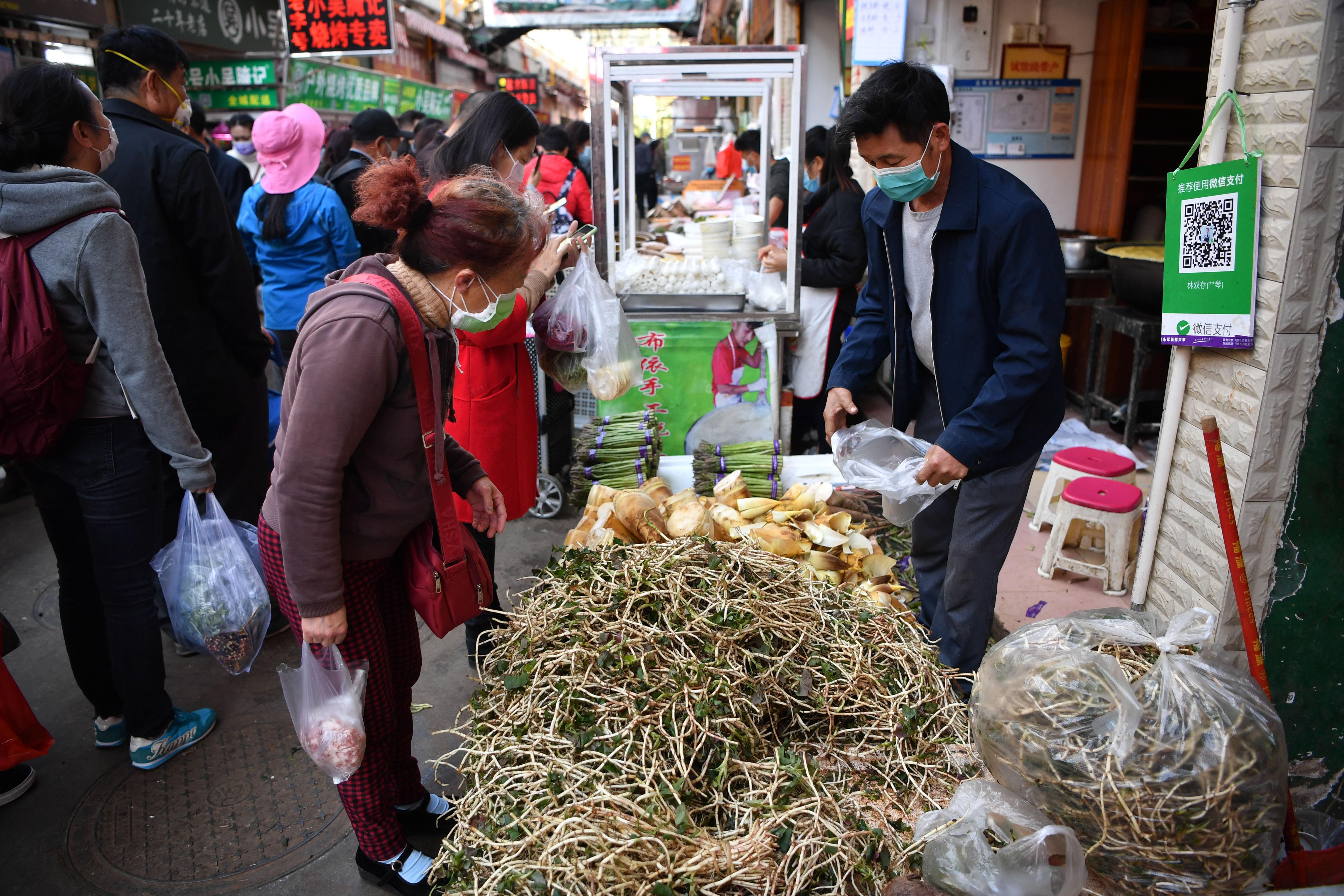
People wearing masks visit a market amid the coronavirus outbreak on March 8, 2020 in Kunming, Yunnan Province of China.
Liu Ranyang | China News Service | Getty Images
Food prices are rising during the coronavirus pandemic, hitting food security.
Last Thursday, the Food and Agriculture Organization (FAO) of the United Nations reported global food prices rose for the third straight month in August, hitting their highest levels since February.
The FAO Food Price Index tracks the international prices of the most commonly traded food commodities.
The rise in food prices was due to firmer demand and a weaker dollar, the FAO said. As commodities, including raw material for food, is usually denominated in the greenback, a weaker dollar lends support to prices.
On Wednesday, China’s Bureau of Statistics said the country’s food prices rose 11.2% from a year ago in August on the back of high pork prices due to the African swine fever outbreak which has decimated China’s hog herds. In August, pork prices rose 52.6% from a year ago.
Hot and rainy weather in the country have also hit prices, with vegetable prices rising 6.4% from July. Egg prices rose 11.3% in the same period due to seasonal demand outpacing low inventory levels.
Experts have said that while there is no pressing food shortage, farms have been roiled as the coronavirus pandemic upended supply chains and curbed movements.
“As the coronavirus crisis unfolds, disruptions in domestic food supply chains, other shocks affecting food production, and loss of incomes and remittances are creating strong tensions and food security risks in many countries,” The World Bank said last Monday.
Although global food prices are generally stable, many countries are experiencing varying levels of food price inflation due to measures taken to contain the spread of coronavirus, it added.
In July, a survey by agri-business Olam found more than half of 2,400 smallholder farmers growing cocoa, coffee, sesame, cotton, and other crops in Africa and Indonesia were experiencing shortages in basic food and nutrition due to movement restrictions, food price increases and insufficient stocks at home.
Of the farmers surveyed, 70% of them said their ability to afford food was impacted as they had less income than usual in the prior four months.
The World Bank in its post warned of disruption to supply ahead if farmers continue to have limited access to food.
“Food producers also face large losses on perishable and nutritious food as buyers have become limited and consumption patterns shift. Though food insecurity is by and large not driven by food shortages, disruptions to the supply of agricultural inputs such as fertilizers, seeds or labor shortages could diminish next season’s crop,” it said.
“If farmers are experiencing acute hunger, they may also prioritize buying food today over planting seeds for tomorrow, raising the threat of food shortages later on,” the institution added.




